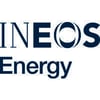Apply for a FREE profile. Unlock your behavioural sight and improve your impact.
Workplace Personality Assessment
A personality assessment aims to determine different aspects of an individual's personality and to decipher their behaviours including their temperament, values, motivations and whether they are an introvert or an extrovert. The C-me workplace personality assessment is an invaluable tool hiring managers can use to ensure a more harmonious and productive workplace.
- ✅ Improve team-wide performance by 32%
- ✅ Reduce employee churn by 20%
- ✅ 53% increase in effectiveness of internaland external communications

Loved by effective companies of all sizes





Benefits of the C-me Workplace Personality Assessment
The benefits of using the C-me workplace personality assessment are many and important and include:
- Streamlining the hiring process: A pre-employment workplace personality assessment will separate good candidates from those who are not an ideal fit. As a result, far fewer unqualified candidates show up for interviews and the entire hiring process runs much more smoothly.
- Enabling effective team building: Everyone wants high-performing teams but they are not easy to come by. Workplace personality assessments can help ensure that teams are composed of compatible individuals which in turn will lead to greater communication and productivity.
- Facilitating workplace harmony: Personality clashes can undermine the entire workplace environment with staff members taking sides and productivity grinding to a halt. Workplace personality assessments will prevent this type of workplace dysfunction to everyone's benefit.
- Improving employee retention: Churn is an anchor weighing down productivity. Every time someone leaves you need to go through the time-consuming process of finding a replacement and training them. When team members get along they are less likely to seek greener pastures somewhere else.

Why people love C-me

“Training materials and support supplied by the c-me team has allowed us to deliver the c-me principles in a simple, fun and memorable way.”


“C-me has given us valuable insight into potential group dynamics as well as a starting point to construct meaningful questions”

“C-me is an enabler to support everyone at LMG to be more aware, involve the right people and to create a solution approach.”


“C-me has helped enable our teams in understanding and appreciating difference.”


“It helped us appreciate each other’s communication preferences better, and understand and avoid previous areas of misunderstanding.”

“Participants on the course state that they are more measured in their responses and have a greater understanding of peoples behaviour.”


“C-me has coloured our working world and improved our working relationships.”


“C-me has been a critical tool to enhance our new performance review process.”


“The great strength of C-me is its accuracy and its simplicity to use.”
About C-me
The C-me colour profiling system is a behaviour-based assessment system and not personality-based like all major assessment tools were for many years. Our system nonetheless does an outstanding job uncovering sometimes hard-to-discern personality traits that can have an oversized impact on the workplace.
Our colour profiling system assigns a colour to each trait which enables office managers, team leaders and even other team members to easily understand what it is that makes their co-workers tick. It's a groundbreaking system that has been adopted by many UK business and institutional titans including Oracle software, HSBC Insurance, Virgin Active, the NHS, the BBC and scores of others.

Learn More About the C-me Workplace Personality Assessment
If the idea of a more harmonious and productive workplace populated by high-performing teams interests you it's time to get in touch with C-me and ask about our workplace personality assessment. You can reach us using the Contact Form on this website or by calling us on +44 (0)1225 721971.

What our clients say about us

C-me has been a really useful tool; using them to not only develop our own self-awareness, but also learn how to communicate better as a team has been really invaluable.


The impact C-me profiles have on teams and the organisation as a whole has been fascinating and refreshing. Individuals have shown more empathy, inclusivity and understanding of their colleagues, creating a happier and more productive culture. I would feel confident in recommending C-me as it creates a shared language for discussing behaviour and difference.


WDC, Whale and Dolphin Conservation began using C-me as a tool for improving communication across our international senior leadership team. It helped us appreciate each other’s communication preferences better, and understand and avoid previous areas of misunderstanding. We have now started to roll C-me out across the UK organisation, putting it into our Onboarding process to help teams communication effectively and appreciate each other’s contribution.


While difficult to quantify in %'s, I notice a greater awareness of why conflict can happen and what team members might need to work effectively once employees understand the colour preferences. Participants on the course state that they are more measured in their responses and have a greater understanding of peoples behaviour.


We pride ourselves on collaborating across departments, and C-Me allows us to enhance that process through a shared understanding of each other's working preferences...

Workplace Personality Assessment FAQs
What Does the Workplace Personality Assessment Measure?
This assessment explores more than just whether someone is introverted or extroverted. It examines values, motivations, working style, temperament, and how individuals tend to behave at work. Through behaviour-based profiling, it reveals how someone is likely to communicate, collaborate, respond to pressure, and engage with change. It helps both the individual and the organisation understand what drives behaviour and what might cause friction or misunderstanding.
How Can This Assessment Help with Hiring and Onboarding?
Using it during hiring enables managers to see not just what a candidate says, but how they are likely to behave in real situations. It supports better decision-making, ensuring that new hires align not only with the role’s demands but also with the team’s culture. In onboarding, results help guide how best to integrate the newcomer: what communication style they may prefer, how to support them, and how to leverage their strengths from the start.
Is This Assessment Only for Large Organisations or Can Smaller Teams Use It Too?
Small and large teams can both benefit. In smaller teams, results are often more immediate: fewer people means individual behaviour has proportionally more impact, so small adjustments can yield big changes. Larger organisations may use it to scale leadership training, improve cross-department relations, or standardise culture across sites. The tool is flexible enough to work at different scales.
What Does the Process Involve and How Long Does It Take?
The assessment typically begins with each person completing an online questionnaire; this takes around 30-45 minutes depending on how thoughtful the responses are. Then, profiles are generated, and a report is prepared that summarises individual styles and a composite view of the team. Workshops or feedback sessions follow, where insights are discussed and applied in practical ways. From start to feedback delivery, the full process usually takes one to two weeks.
How Is Confidentiality and Sensitivity Handled?
Because it touches on personal behaviour and preferences, confidentiality is taken seriously. Individual profiles are shared only with the person concerned unless everyone agrees to full team‐sharing. Feedback sessions are facilitated to ensure psychological safety so that people feel safe to express themselves and use the insights for growth rather than criticism.
Can the Assessment Be Tailored to Specific Needs or Roles?
Yes. Organisations can choose which dimensions to emphasise depending on their needs. For example, for customer-facing roles, communication style and temperament under stress might be highlighted; for leadership roles, decision-making style, conflict handling and motivation may receive more attention. The colour profiling framework is flexible so that the results remain relevant, realistic, and useful.
Contact our sales team
We’re happy to answer any questions and show you how C-me can enhance your team's communication, improve collaboration, and foster better leadership development.
-
Schedule a consultation
-
Schedule a consultation
-
Schedule a consultation

